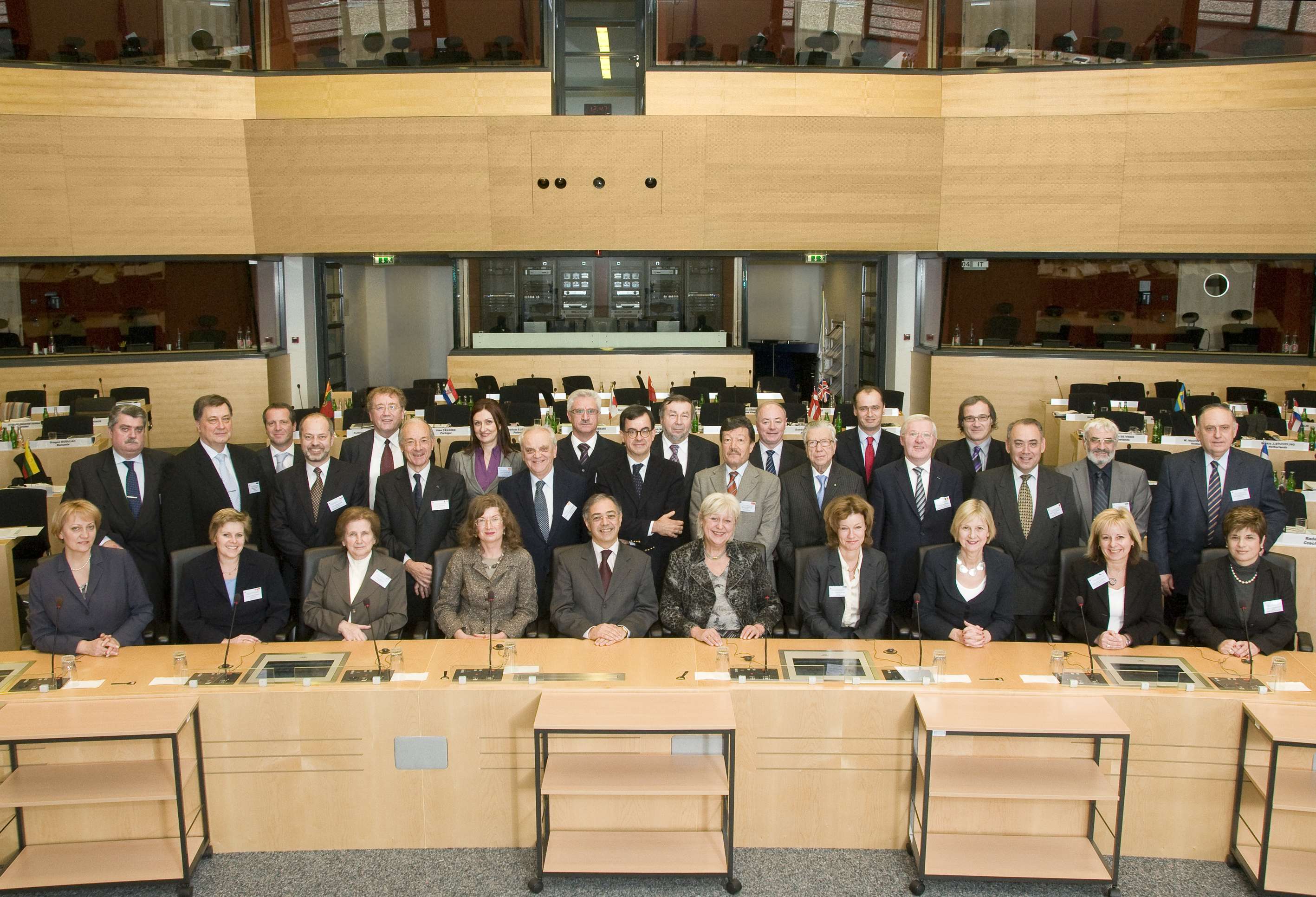The Heads of the Supreme Audit Institutions (SAIs) of the 27 EU Member States
and the European Court of Auditors (ECA) met in Luxembourg on
1-2 December 2008

The ECA hosted the two-day annual meeting of the Contact Committee of the
Heads of EU SAIs in Luxembourg. The meeting was chaired by the ECA’s
President, Mr. Vítor Caldeira. The Heads of the European Union's 27 SAIs
were present, as were the Heads of the Candidate countries' SAIs,
representatives of the EUROSAI Training Committee and SIGMA, who attended as
observers.
The 2008 Contact Committee meeting took place at a time when Europe and
the rest of the world were still in the process of absorbing the global
shockwaves originating from the crisis in the financial markets. Against
this background, the main thematic focus of the 2008 Contact Committee
meeting was discussions on the EU Budget Reform and the revised
2008-2010 Lisbon Strategy; two subjects that are of relevance to the
management of the financial crisis affecting the EU and its Member
States. Both subjects were elaborated during panel discussions.
Mrs. Dalia Grybauskaité, the then Commissioner for Financial Programming and
Budget, delivered a lead presentation on the EU budget reform. The ensuing
discussion confirmed that action was needed and showed how important the
role of the SAIs is in this respect. Their risk assessment plays a decisive
role in a financial environment where the flow of money is stagnating.
Likewise, the revised 2008-2010 Lisbon Strategy was discussed against the
background of these developments. There was optimism that the revised Lisbon
Strategy might help to curb the adverse effects of the financial crisis.
The second day of the meeting included exchanges of experiences and
information on the outcome of cooperation, covering specific areas of the
management of EU funds and audit issues as well as the outlook for future
activities.